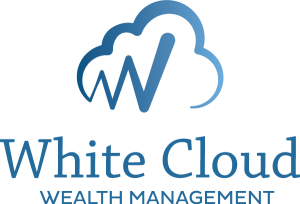
Table of Contents
Introduction
Like most Americans you might have found yourself in a substantial amount of debt. In fact, the household debt in the U.S. reached a record 16.9 TRILLION dollars in 2022. While your debt might seem like an unscalable mountain in the distance, having the proper plan will make it closer to a walking in a meadow.
Best Options For Paying Off Your Debt
Avalanche Method: Paying High Interest First
The "Avalanche" method of paying debt is to focus on paying down your highest interest loans down first. For example, if you have a bunch of different loans out there at different interest rates, you would make your minimum payments on all of them each month. Then you use any left over funds to pay down the loan with the highest interest rate first. This reduces the principle and frees up money because it reduces your monthly payment.
Pros:
- Pays the highest interest rate first
- Usually saves you the most money on interest expense
- Can be better when saving for other goals like retirement
Cons:
- Less psychological friendly than the "Snowball Method"
- You have to understand interest rates
- Requires you to pay more attention to how your loans work
Snowball Method: Paying Down Principle First
The "Snowball Effect" is when you pay off your lower interest rate loans first. This frees up your monthly payments to allow you to pay more on your other debt. For instance, you might owe 1,000 dollars in credit card debt with an interest rate of 12%. This means you owe 120 dollars a month until the card is paid off. If you were to pay off this loan first, then you would free up 120 extra dollars a month to put towards your larger debt. This method is usually worse than the Avalanche model due to interest expense.
Pros:
- Pays off smaller debts first
- Doesn't require you to pay as much attention to interest rates
- Gives you small wins when you pay off the debt
Cons:
- Most of the time it results in people paying more money in interest
- Can be less effective than the Avalanche method depending on your circumstance
- This method might not work depending on your monthly budget
Here is an excel spreadsheet to help you decide what option is best for you.
Having trouble deciding which method is right for you? Schedule a time to speak with one of our advisors HERE to help you get started.
Balancing Paying Off Debt and Planning For the Future
Sometimes you might have an option of paying off debt or saving for the future. Depending on what your interest rate is, it's possible that you should be saving for retirement instead of paying off your debt first. For instance, If you have a low interest rate say 3% on your debt it makes more sense to invest your money rather than paying off your loan faster. This is because over long time frames the stock market can provide you 8-10% returns.
Avoiding Debt In The Future
Create a Monthly Budget
It might seem obvious to make a monthly budget, but almost everyone we meet with has absolutely no clue how much money they spend a month. This is a bare minimum step to paying down your debt. You will have absolutely no clue what strategy to use if you don't manage your finances.
The 50-30-20 Rule
When creating a budget a great rule of thumb is to spend 50% of your monthly income on fixed expenses, 30% on having fun, and 20% on your savings goals. Of course, you may need to pay off your debt before reaching these numbers, but this is a great goal to strive for if you're just starting out.
Starting With Savings Goals
Another way to budget is to start with how much you need to save and reverse engineer your budget from there. Most people need to save around 10% of their income each year to have a retirement that matches their current lifestyle.
Use an App To track your budget
We have been sending clients to Rocket Money (Formerly True Bill) to track their monthly expenses. Here you can see how much you spend, what you spend it on, and even set up a budget. This tool cost 10 dollars a month and has a 7 day free trail.
Stop "Keeping Up With the Joneses"
You might see the newest iPhone come out and think "I have to have it" when you should think "can I afford it." If the answer is no then don't get it, especially if your current phone works just fine. The thing about the people driving the newest car or are buying the house they can barely afford is their are stressed out constantly. It puts strain on marriages and relationships and living that way for too long will result in a poor retirement. It's easier said than done, but do your best to live within your means. Eventually you will build the life you want as long as you are patient.
Conclusion
Paying debt can be pretty daunting, but there is a strategy out there that will allow you to reach your goals and become debt free. That said it can be hard to decide when to focus on retirement or paying off your debt. Luckily, if you need help deciding what to do we are here, ready to help you find the best path forward. Just schedule a free consultation here.
Sean West, Wealth Management Advisor/ CFP®
Disclosure
This blog reflects the personal opinions, viewpoints and analyses of the White Cloud Wealth Management employees providing such comments, and should not be regarded as a description of advisory services provided by White Cloud Wealth Management. The views reflected in the blog are subject to change at any time without notice. Nothing in this material constitutes investment advice, performance data or any recommendation that any particular security, portfolio of securities, transaction or investment strategy is suitable for any specific person. Any mention of a particular security and related performance data is not a recommendation to buy or sell that security.
Resources:
American Debt Statistics:
https://www.debt.org/faqs/americans-in-debt/demographics/#:~:text=American%20household%20debt%20hit%20a,pandemic%20high%20of%20%24927%20billion.
Vertex 42 Debt Calculator
https://www.vertex42.com/Calculators/debt-reduction-calculator.html



